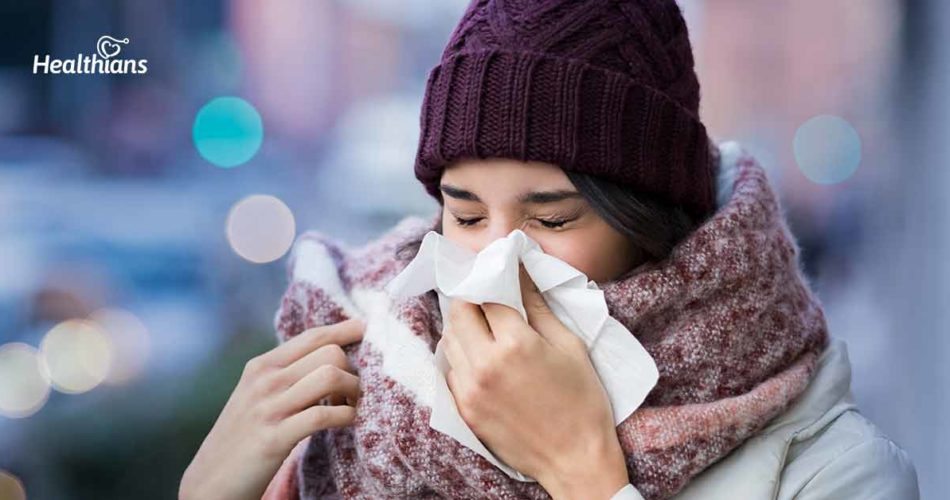Contributed by: Healthians Team
Introduction
Winter means the season of endless cups of “adrak chai” and strong coffee — and if you’re one of the millions of people who have winter allergies, it also means a host of bothersome symptoms, from a runny nose and sneezing to a sore throat and itchy eyes.
What are winter allergies?
Allergies in the winter are equally as common as they are in other seasons. Because allergies are triggered by exposure, we know that they change and progress over time.
To develop an allergy, you must be exposed to the allergen more than once. Mold, dust, dust mites, and animal dander are the most common allergens in the winter.
Winter allergies can make you miserable. The good news is that a few lifestyle changes and medical assistance can help you manage winter allergies.
Keep reading to learn more about winter allergies, including the causes, symptoms, and simple strategies to keep seasonal allergies under control.
What could cause winter allergies?
Because people spend more time indoors in the winter, especially in poorly ventilated environments, they are more likely to notice their allergies flare up during colder weather conditions.
The most common allergens that may cause winter allergies, include:
- Mold spores
- Pets (cats, dogs) dander
- Dust, or dust mites
- Cockroaches, including cockroach faeces and shells
What are the symptoms of winter allergies?
Most common winter-induced allergy symptoms include:
- Coughing
- Itchy eyes and nose
- Stuffy or runny nose
- Continuous sneezing
- Itchy and watery eyes
- Ear congestion
- Postnasal drainage
Some other associated symptoms include:
- Headache
- Shortness of breath
- Coughing
What is the difference between a winter allergy and a cold?
Given that it is winter, it is highly likely that individuals will mistake an allergic reaction for a cold. The most perplexing aspect of determining whether you have a cold or allergies is how similar the symptoms are.
Coughs, sneezing, and a stuffy, runny nose are all symptoms of airborne allergies and common colds.
However, there are a few major differences between the two conditions.
- A cold should last no more than 7 to 10 days, and symptoms should start to improve after the first week. Allergies, on the other hand, can linger throughout the season and never seem to improve
- An allergy normally appears at the start of a season, although a cold might appear at any time
What are the treatment options for winter allergies?
Treatments for winter allergies include:
- Antihistamines, to reduce sneezing, and sniffling
- Decongestants, to clear mucus to relieve congestion and swelling
- Immunotherapy (allergy shots) to expose your body to gradually bigger doses of the allergen
Interested in alternative treatments? Consider these
To pacify allergy symptoms, Ayurveda advocates consuming herbs, such as
- Coriander
- Cilantro
- Guduchi
- Amalaki
- Neem
How can winter allergies be prevented?
You can’t prevent an allergy. But if you know you’re allergic, you can take steps to minimise the indoor allergen exposure altogether. Use these tips:
- Get rid of shower curtains, wallpaper, and carpets that have mold
- Use a dehumidifier to maintain the humidity in your home
- Wash your bedding in hot water every week
- Use allergy-proof covers on pillows, mattresses, and comforters
- Use nasal sprays
- Remove stuffed toys from kid’s bedrooms
- Expose your bed sheets and blankets to the sun, so as to keep the dust mites away
- Use over-the-counter allergy medications that stop the allergy symptoms
- Avoid smoking
- Rinse your nasal passages with saline solution (nasal irrigation)
Final thoughts
Winter allergies can cause a lot of discomforts. Consult your doctor if you feel you have persistent symptoms of winter allergies. They can assist you in determining the cause of your symptoms by conducting comprehensive allergy tests and developing a treatment strategy. They will almost certainly counsel you to avoid your allergy triggers.




